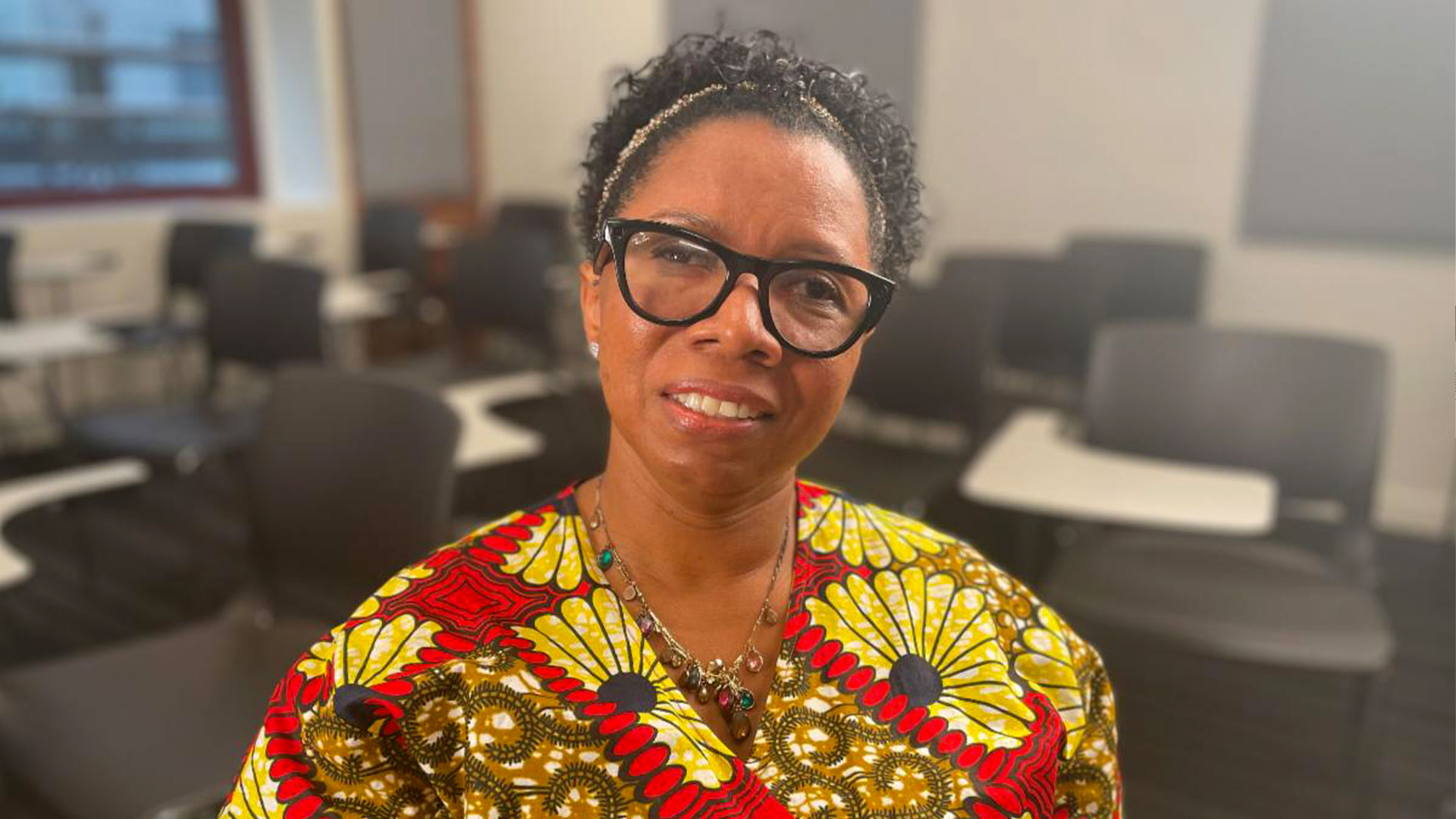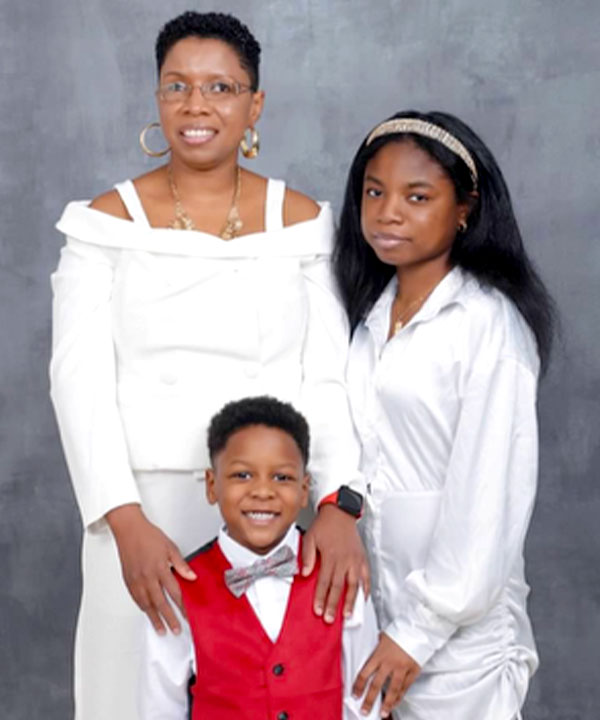SLU student Rina D. Cummings comes across as even keeled and self-possessed, even though her life has been shaken by profound transitions. Born in Liberia, she spent part of her childhood in a Ghanaian refugee camp before immigrating at 12 to America. At 29, she lost much of her eyesight to fungal meningitis. She went on to endure grueling warehouse work at Amazon, and was abruptly fired after years of service. Through each challenge, she has rebuilt and redefined her path forward.
Now, Rina expects a different kind of transition — one that leads to stability and purpose. She is pursuing a B.A. in Labor Studies at SLU with hopes of “getting out of poverty and mediocre jobs,” as she put it, and opening doors to a career where she can help others.
“As long as I get to advocate for people, give a voice to the voiceless, no matter what that job looks like, I think I will be satisfied,” she said.
It’s a far cry from the quiet girl who was so shy that her grandmother had to urge her to say good morning. Serious life challenges contributed to changing that, Rina reflects.
“I think low vision kind of pushed me in that direction of advocacy more. And then the Amazon experience. I mean that was the tipping point. I mean literally I had already lost my vision because of poor medical care. And then I buy into this corporation that sells you the dream,” she said.
Rina began working as a flat sorter in 2018, moving 1,800 packages per hour on a shipping dock at the JFK8 warehouse. She had applied to Amazon for a job because she knew the company was big enough to accommodate her special needs due to low vision. The work wasn’t easy and employee turnover around her was constant, but she liked it.
She was there in 2020 when her former boss, Chris Smalls, began organizing around the poor working conditions that he and others experienced, forming what would become the Amazon Labor Union. Rina got involved and stayed involved until she was fired in 2023 – for some combination of retaliation for organizing and using too many sick days, as far as she could tell. She went to the union for help post-firing, then kept coming back as a volunteer.
“I got a crash course in union stuff, and I liked it,” she said. “I’m a trained noisemaker.” Fellow organizers let her know about the School of Labor and Urban Studies. Rina had made a few tries at college already, but they didn’t stick. She took a college readiness course through the Lighthouse Guild and then enrolled in SLU’s undergraduate certificate program in Labor Studies. With that under her belt, she decided to go for a bachelor’s degree.
After all her trials – including losing her Social Security disability benefits recently without warning – Rina is delighted by the smooth sailing she’s experienced at SLU. Administrators at CUNY’s Disability and Accessibility Services office and at SLU have delivered what feels like “concierge service” in terms of making college possible, she says. Whether a scholarship director or IT folks, people are responsive and resolve issues quickly. “I’m used to getting the runaround, bureaucratic nonsense,” she said.
Rina is the mother of two children, and her college experience is part of their lives as well. Son Isaiah is eight; he has accompanied Rina to SLU a few times and enjoyed himself. Daughter Jada is 21 and currently working toward her own bachelor’s degree at Buffalo State University — a special parallel between their lives.
“It’s been quite amazing. It’s taking our relationship to a new level,” Rina said. “We talk about so much more, as far as, you know, schoolwork, academia, politics. How what we’re learning in history and the present correlate and what’s getting better, what’s not changing. I mean, we have these really long conversations. It’s brought us to a better place.”
Given Rina’s savvy and unflappability, it seems that her proven abilities to adapt and learn will continue to serve her — and her communities — well. She uses a host of tools to navigate her days, from special Meta glasses to software that reads her assignments aloud. She works with the Greater New York Council for the Blind to keep bringing accessibility and aid to others, such as obtaining “assistive crossing” at intersections and working for new testing for babies to preserve their eyesight.
In the halls of SLU, Rina is recognizable not just because of her cane, but for the bright colors and patterns that she wears. One day she may wear a striped red, orange and blue tank dress; another day it could be a yellow, red and amber dress made of Fante cloth from Ghana, with a sparkling headband to match and manicured red nails. “I still have some vision, and the colors are so beautiful. I want to immerse myself in as many beautiful, wonderful things as I can in life before I lose my vision,” she said.
Ironically, perhaps, SLU is special to Rina because she feels seen. “Being seen is a great feeling. And especially in a college setting. I receive constant support and acceptance. I feel people listening to me, and, you know, my opinion actually counts,” she said. “I look forward to my days when I have class. I look forward to it.”


